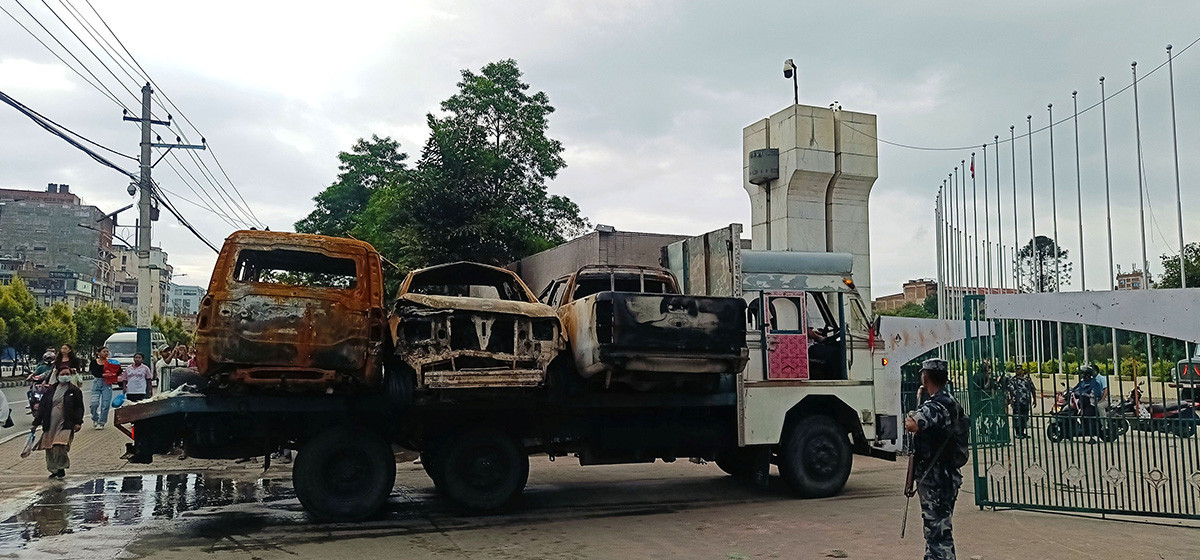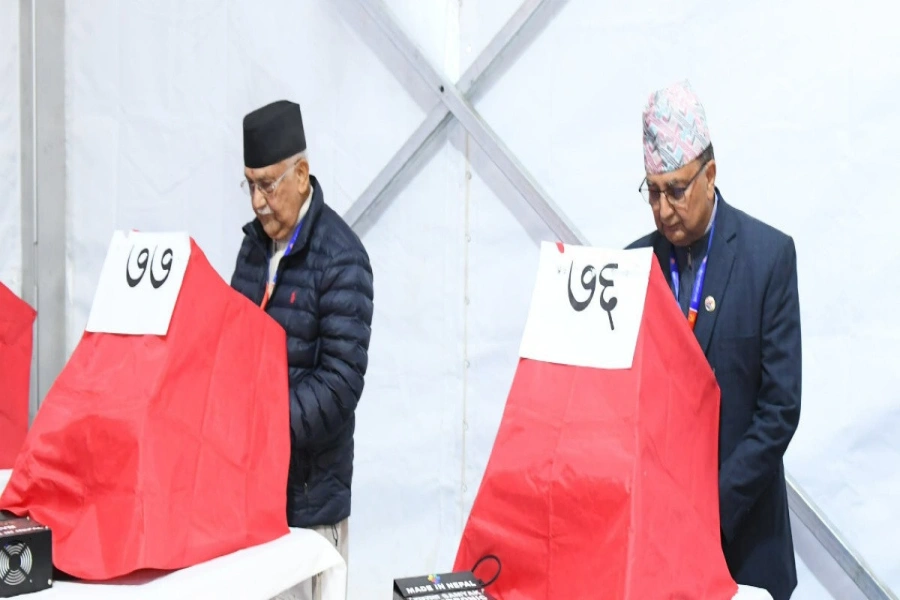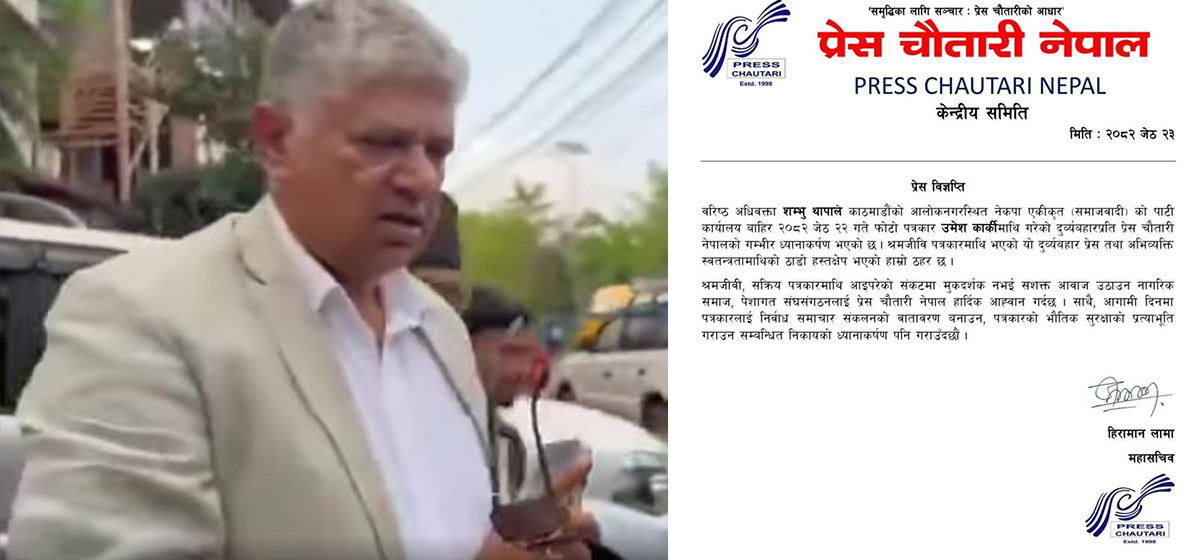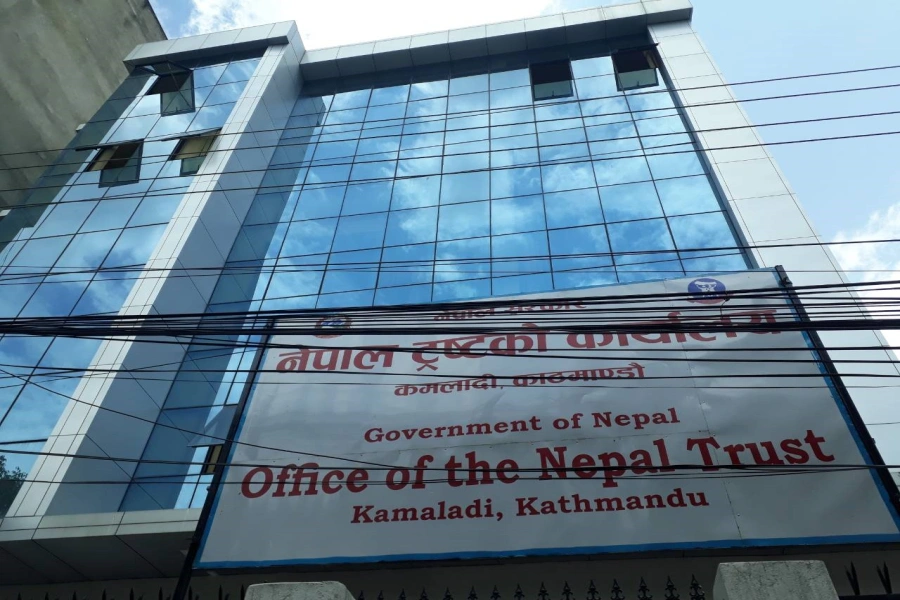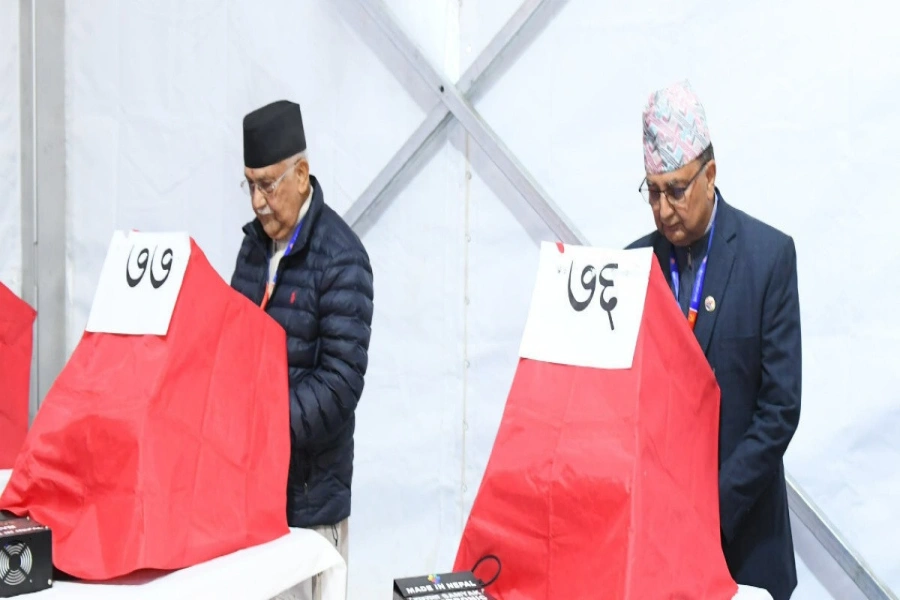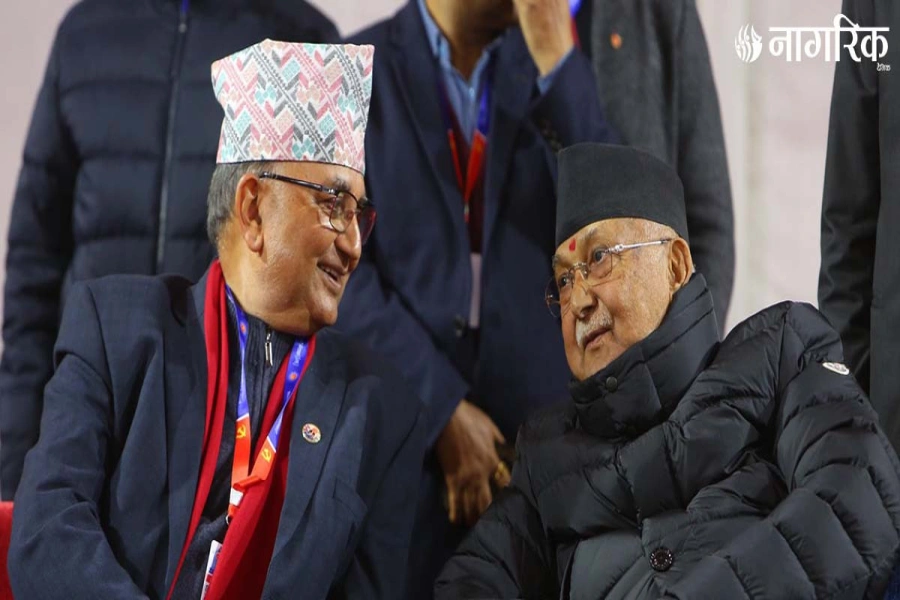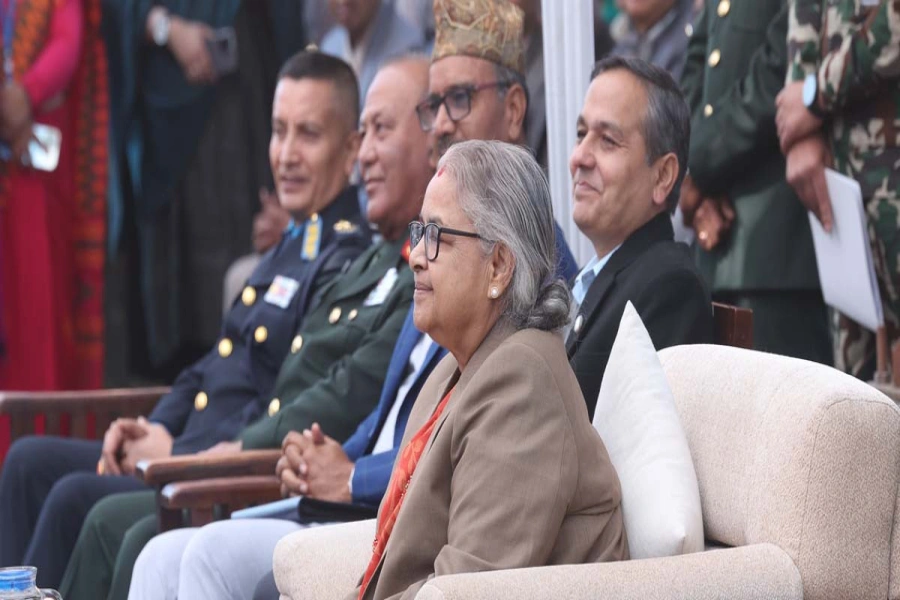KATHMANDU, Feb 16: Senior advocate Badri Bahadur Karki, who is one of the five members of the amicus curiae formed to assist the Supreme Court in the House dissolution case, has argued that the apex court should take a decision on the case on the basis of constitutional provisions made in the Constitution of Nepal.
Giving his opinion on the case involving the dissolution of the lower house of the federal parliament, advocate Karki suggested to the apex court not to pass a verdict on the case going beyond the existing constitutional provisions.
“The interpretation should be made on the basis of what has been written in the constitution,” he said. “It should be interpreted on the basis of the existing laws no matter who interprets the constitution.”
Ghimire nominated coordinator of NC’s central election committe...

Karki argued that although the constitution in principle paves the way for the prime minister to dissolve parliament, there are certain conditions that the prime minister has to fulfill before taking the decision. He said that since the provisions related to the right of the prime minister to dissolve parliament are vague, it is the duty of the court to clarify those provisions as well.
Karki also argued that the apex court should take note of the fact that political parties that were involved in drafting the constitution themselves are protesting against the dissolution of parliament, terming it as an ‘unconstitutional’ move.
The amicus curiae members started providing their suggestions to the court on the parliament dissolution case from Tuesday. Four other members of the amicus curiae are scheduled to put forth their suggestions to the apex court this week.



